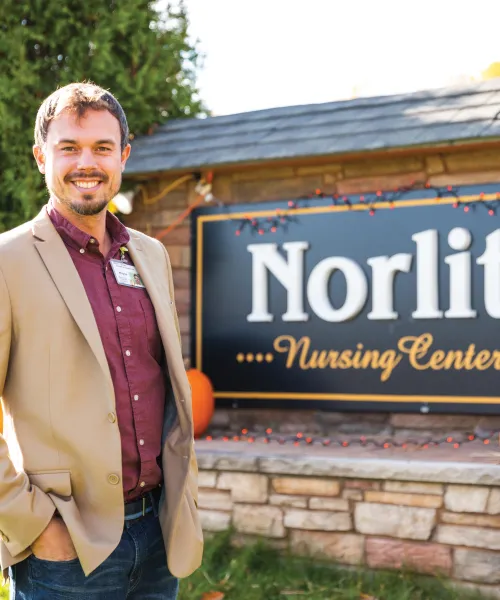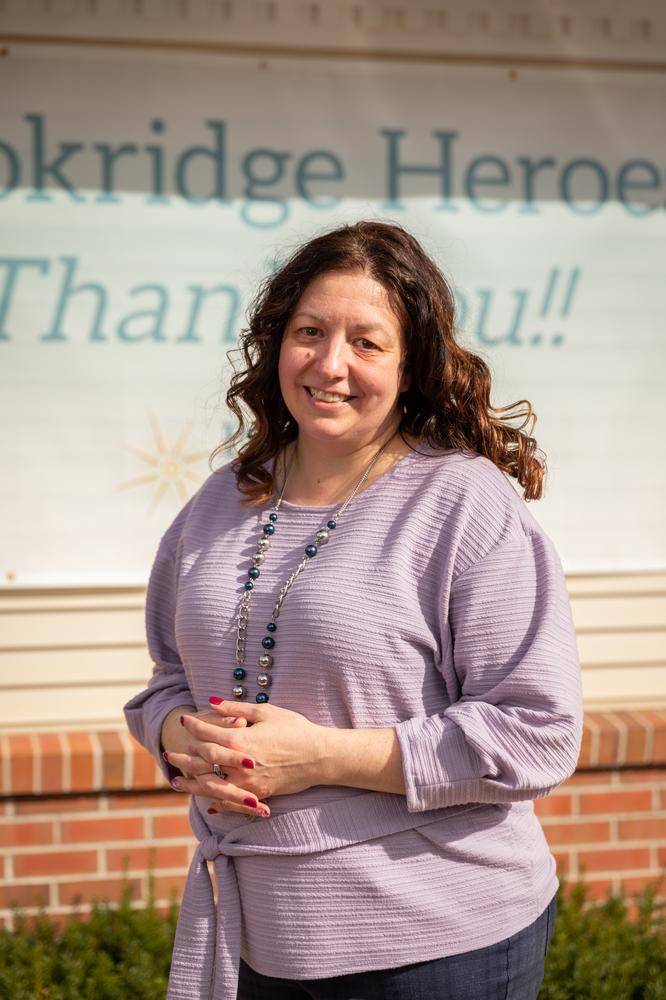by Jill Vermeulen '18 BS
The nation’s population is aging, and rural populations tend to be older than their urban counterparts, according to Rural Health Information Hub. This increases the demand for in-home and long-term care to meet residents’ health needs.
One challenge facing long-term-care facilities in rural areas is recruiting an adequate workforce because there is a smaller pool of qualified prospective employees. Wayne Johnson ’06 BS, ’12 MBA, administrator of Norlite Nursing Center in Marquette, said there are other staffing issues faced by facilities in both rural and urban areas.
“There is high turnover, a low conversion rate of applicants becoming long-term teammates and less-than-ideal staffing levels,” said Johnson. “At Norlite, we’re certainly above national averages for staffing levels, yet we understand that recruiting, hiring and training demands a continuous effort in order to keep staffing levels appropriate.”

Brookridge Heights Assisted Living and Memory Care also relies on NMU students and alumni for its staff, currently employing 20 NMU students and 12 alumni. Six of seven management team members at Brookridge Heights are alumni, including Executive Director Jennifer Huetter ‘01 BS.

“Many seniors are unaware of what assisted living really is and we often get referred to as a nursing home,” Huetter said. “Assisted living typically offers private individual apartments, an abundance of social activities and restaurant-style dining. Our residents in our memory support community are active. They garden, enjoy exercise class and love to have meaningful conversation and engagement. Assisted living is about living.
“Also, the payment structure is different than in a nursing home. Where a nursing home accepts Medicaid to cover costs, we do not. Assisted living costs are covered by the residents. They often typically afford assisted living by selling their homes, savings, retirement, pension and social security. Whenever someone comes to me that cannot afford our service, we always try to work with them to find appropriate placement.”
Brookridge Heights has faced occupancy growth throughout the past several months, having remained free of the COVID-19 virus among residents. Norlite was hit harder in the early stages of the pandemic, with 26 residents testing positive and eight of those passing away from virus-exacerbated complications. Remaining free of the COVID-19 virus since April, occupancy at Norlite is trending upward again.
While occupancy has not typically been a challenge in Marquette, low numbers in many rural areas nationwide have forced some facilities to shut down, making it more difficult for older Americans to find the services they need without relocating. It’s another challenge in a changing health-care landscape.
